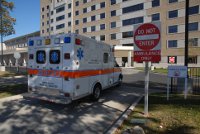Healthcare standards in Singapore are high and all practising medical professionals are required by law to be registered with the government. Expatriates may find some differences in Singapore’s approach to medical treatment as compared to their home countries, but access to healthcare for anyone is generally good in Singapore.
As a working expatriate, bear in mind that many companies have a practice of recognising “sick leave” only when the person is declared sick by a doctor. When you are ill, it is most likely you will visit a private health clinic – there are some 2,000 privately-run medical clinics located throughout Singapore. Most privately-run clinics operate during office hours but there are a number of 24-hour clinics that you can go to for medical treatment after office hours (for non-emergencies).If you have healthcare benefits offered by your employer or by your insurance company, check if the healthcare benefits cover private medical treatment. Many private clinics work with businesses and companies to offer medical treatment at selected private clinics. The typical cost of visiting a doctor and getting medication is around SGD$30-$50 per visit.
One unique aspect about getting medication that first-time expatriates to Singapore may find unusual is that medication is usually dispensed by doctors and not pharmacies. You can request a prescription and choose to buy the medication from a pharmacy, it is just not the usual practice.
Pharmacies are located all over Singapore. The two larger pharmacies operating in Singapore are Guardian Pharmacy and Unity Pharmacy – both pharmacy brands have more than 50 outlets each that are conveniently located in shopping malls all over the country. While there are many pharmacies in Singapore, do note that not all pharmacies have a pharmacist on call all the time. So while some pharmacies offer general health screening checks such as glucose and blood pressure or cholesterol, do call the pharmacy outlet in advance to ask if those services are available, or if a pharmacist is available at that particular outlet at that particular time.
Another unique aspect of medical treatment in Singapore is the availability of Traditional Chinese Medicine clinics (TCMs). Watsons is a personal care store that is prevalent throughout Singapore. You can find off-the-shelf medication for minor ailments such as common coughs or colds, first-aid kits, and so on. Some Watsons outlets have a pharmacy section too.
Most expatriates in Singapore would seek dental treatment from privately-run clinics. There are over 400 privately-run dental clinics, in addition to 13 public dental clinics where you can get basic dental care.
If you need to seek treatment at a hospital, there are 7 publicly and 5 privately-run hospitals in Singapore. Most hospitals have a 24-hour A&E department as well to handle major incidents or emergencies, both within and after office hours. There are also 6 specialist centres for cancer, eye, dental care, heart, neuroscience and skin.
If you are pregnant and planning to have your baby in Singapore, the general practice is to engage the services of an OBGYN for ante-natal, delivery and post-natal services. Practicing midwives are rare in Singapore. You can expect high-standards for OBGYN services but it can cost a fair bit, and insurance companies typically do not cover maternity and delivery costs. Many OBGYN are found in private clinics. There are also specialized women clinics in Singapore you may wish to consider. Most hospitals offer delivery packages that are available to both Singaporeans as well as expatriates. You can visit the respective hospitals’ websites for more details.
If you have children who will be attending school in Singapore, bear in mind that immunization is compulsory. Parents need to show vaccination records before admission to schools in Singapore is granted. Immunisation is against diseases such as BCG (Tuberculosis), MMR (Measles, Mumps, Rubella, Varicella), DTaP (Dipheria, Pertussis, Tentanus), PCV (Pneumococcal), Polio (oral or inactivated) and Hepatitis B. Some expatriates have also pointed out that the scheduling of vaccinations in Singapore differ from those in their home countries, especially for newborns and babies under the age of 2.


